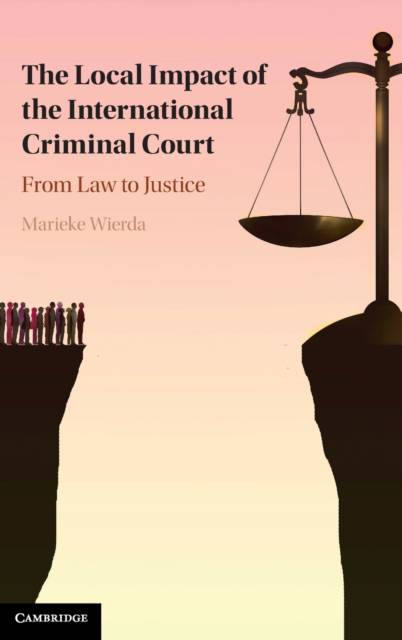
- Afhalen na 1 uur in een winkel met voorraad
- Gratis thuislevering in België vanaf € 30
- Ruim aanbod met 7 miljoen producten
- Afhalen na 1 uur in een winkel met voorraad
- Gratis thuislevering in België vanaf € 30
- Ruim aanbod met 7 miljoen producten
Zoeken
The Local Impact of the International Criminal Court
From Law to Justice
Marieke Wierda
Hardcover | Engels
€ 158,95
+ 317 punten
Omschrijving
The International Criminal Court seeks to end impunity for the world's worst crimes, to contribute to their prevention. But what is its impact to date? This book takes an in-depth look at four countries under scrutiny of the ICC: Afghanistan, Colombia, Libya, and Uganda. It puts forward an analytical framework to assess the impact of the ICC on four levels: on the domestic legal systems (systemic effect); on peace negotiations and agreements (transformative effect); on victims (reparative effect); and on the perceptions of affected populations (demonstration effect). It concludes that the ICC is having a normative impact on domestic legal systems and peace agreements, but it has brought little reparative justice for victims, and it does not necessarily correspond with how affected populations view justice priorities. The book concludes that justice for the world's worst crimes has no 'universal formula' that can easily be captured in law by one institution.
Specificaties
Betrokkenen
- Auteur(s):
- Uitgeverij:
Inhoud
- Aantal bladzijden:
- 250
- Taal:
- Engels
Eigenschappen
- Productcode (EAN):
- 9781009152747
- Verschijningsdatum:
- 20/07/2023
- Uitvoering:
- Hardcover
- Formaat:
- Genaaid
- Afmetingen:
- 152 mm x 229 mm
- Gewicht:
- 612 g

Alleen bij Standaard Boekhandel
+ 317 punten op je klantenkaart van Standaard Boekhandel
Beoordelingen
We publiceren alleen reviews die voldoen aan de voorwaarden voor reviews. Bekijk onze voorwaarden voor reviews.











